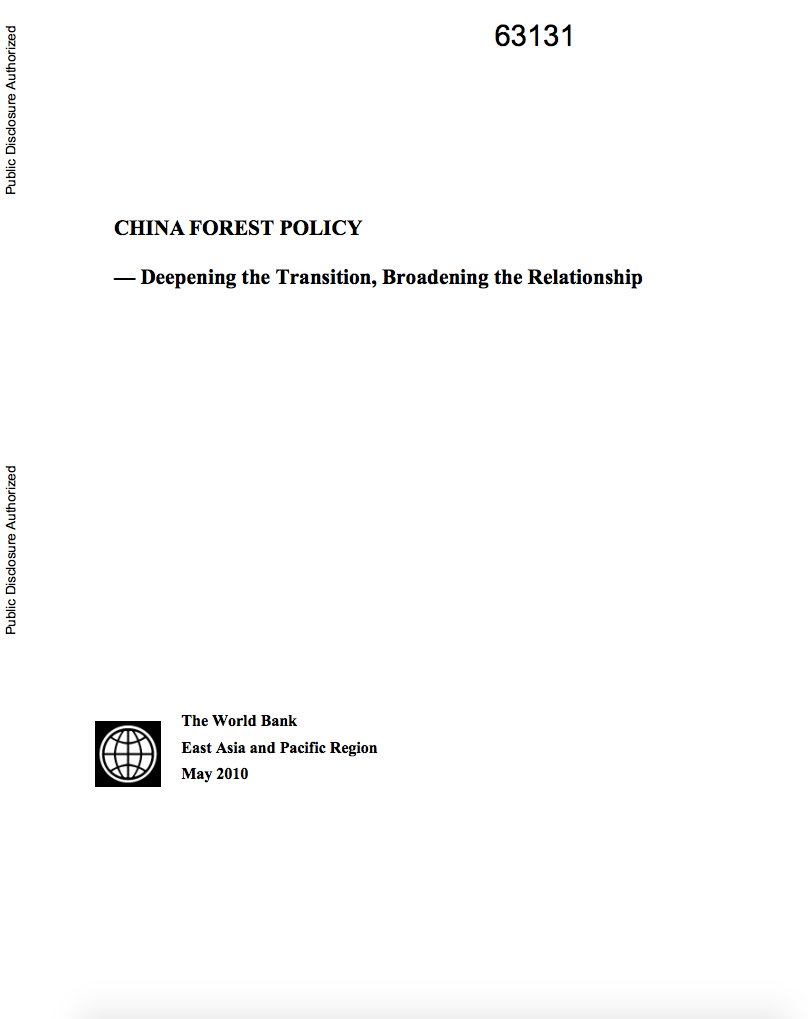The World Bank is a vital source of financial and technical assistance to developing countries around the world. We are not a bank in the ordinary sense but a unique partnership to reduce poverty and support development. The World Bank Group has two ambitious goals: End extreme poverty within a generation and boost shared prosperity.
- To end extreme poverty, the Bank's goal is to decrease the percentage of people living on less than $1.25 a day to no more than 3% by 2030.
- To promote shared prosperity, the goal is to promote income growth of the bottom 40% of the population in each country.
The World Bank Group comprises five institutions managed by their member countries.
The World Bank Group and Land: Working to protect the rights of existing land users and to help secure benefits for smallholder farmers
The World Bank (IBRD and IDA) interacts primarily with governments to increase agricultural productivity, strengthen land tenure policies and improve land governance. More than 90% of the World Bank’s agriculture portfolio focuses on the productivity and access to markets by small holder farmers. Ten percent of our projects focus on the governance of land tenure.
Similarly, investments by the International Finance Corporation (IFC), the World Bank Group’s private sector arm, including those in larger scale enterprises, overwhelmingly support smallholder farmers through improved access to finance, inputs and markets, and as direct suppliers. IFC invests in environmentally and socially sustainable private enterprises in all parts of the value chain (inputs such as irrigation and fertilizers, primary production, processing, transport and storage, traders, and risk management facilities including weather/crop insurance, warehouse financing, etc
For more information, visit the World Bank Group and land and food security (https://www.worldbank.org/en/topic/agriculture/brief/land-and-food-security1
Resources
Displaying 4296 - 4300 of 4906Mapping Vulnerability to Climate Change
This paper develops a methodology for
regional disaggregated estimation and mapping of the areas
that are ex-ante the most vulnerable to the impacts of
climate change and variability and applies it to Tajikistan,
a mountainous country highly vulnerable to the impacts of
climate change. The authors construct the vulnerability
index as a function of exposure to climate variability and
natural disasters, sensitivity to the impacts of that
Valuing Water Quality Improvement in China : A Case Study of Lake Puzhehei in Yunnan Province
While polluted surface water is
encountered across most of China, few economic valuation
studies have been conducted on water quality changes.
Limited information about the economic values associated
with those potential water quality improvements or
deteriorations is a disadvantage for making proper choices
in water pollution control and clean-up activities. This
paper reports an economic valuation study conducted in
China Forest Policy : Deepening the Transition, Broadening the Relationship
A pattern of forest area loss followed
by a period of reforestation is representative of the forest
transition process. Forest transition has been observed in
many countries and is a feature of the development process.
China reached its inflection point earlier and faster than
most other countries that have gone through the transition.
The report describes the success of reforms to forest
resource tenure in collective forest areas. These reforms,
The Zambezi River Basin : A Multi-Sector Investment Opportunities Analysis - State of the Basin
The Zambezi River Basin (ZRB) is one of
the most diverse and valuable natural resources in Africa.
Its waters are critical to sustainable economic growth and
poverty reduction in the region. The overall objective of
the Zambezi River Multi-Sector Investment
Opportunity Analysis (MSIOA) is to illustrate the benefits
of cooperation among the riparian countries in the ZRB
through a multi-sectoral economic evaluation of water
The Zambezi River Basin : A Multi-Sector Investment Opportunities Analysis - Basin Development Scenarios
The Zambezi River Basin (ZRB) is one of
the most diverse and valuable natural resources in Africa.
Its waters are critical to sustainable economic growth and
poverty reduction in the region. The overall objective of
the Zambezi River Multi-Sector Investment
Opportunity Analysis (MSIOA) is to illustrate the benefits
of cooperation among the riparian countries in the ZRB
through a multi-sectoral economic evaluation of water







